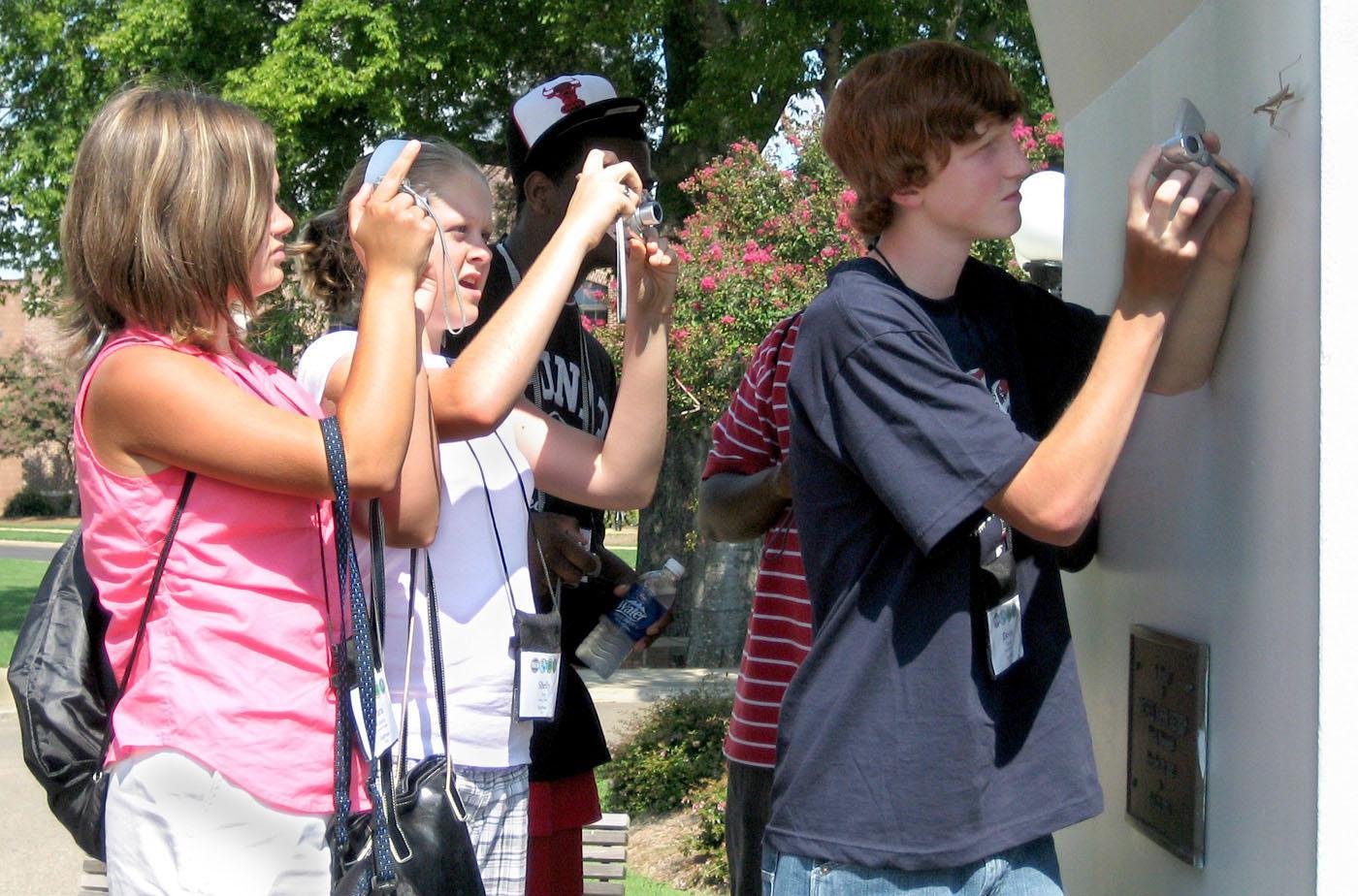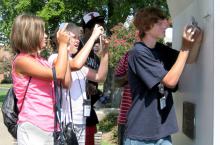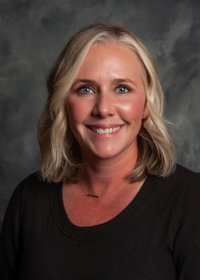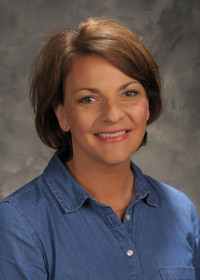Information Possibly Outdated
The information presented on this page was originally released on August 9, 2007. It may not be outdated, but please search our site for more current information. If you plan to quote or reference this information in a publication, please check with the Extension specialist or author before proceeding.
4-H technology program builds career foundations
MISSISSIPPI STATE -- Like most seventh-graders, Calina Young's choice of future careers changes from day to day. Yesterday it was a nurse, but today it's a Web designer.
Young was one of 45 Mississippi 4-H members ages 14-18 taking part in a technology camp at Mississippi State University this summer. The senior 4-H members, along with eight volunteer leaders, focused on various aspects of technology, including Web design, digital photography, Flash animation and Geographic Information Systems, or GIS.
Young learned about the technology camp through her involvement in a 4-H after-school program in Lauderdale County.
“I want to start a Web site for our 4-H group to help others learn what's available in 4-H,” she said. “4-H is a good way to help kids stay out of trouble.”
Linda Mitchell, associate professor with MSU's Extension Service, was the camp organizer. She agreed the 4-H technology program appeals to today's youth, who are also tomorrow's community leaders.
“There is a significant community service component to this camp. These youth will return to their counties and train other youth and adults to use technology in new and different ways,” Mitchell said. “The additional benefit is that being able to master technology skills will give each of these participants more career options later in life or even sooner with part-time job opportunities.”
Mitchell said technology skills boost the self-confidence of the teens. They realize they have valuable skills that can be used to help others.
Camp participant Tara Roberts is an eighth-grader at George County Middle School this year. She earned a scholarship to the camp after designing a winning comic strip for the 4-H Literacy Project offered through her art class at school. She spent her days learning how to work with Flash animation.
“I love to draw and do animation. I'd like to write more comic strips in the future,” Roberts said. “It's a good idea to teach kids about technology. In today's world, you have to know this stuff.”
Mitchell said in addition to the focal subjects, mini-tracks provided brief insight into topics such as presentation graphics, social networking sites and game challenges.
“Gaming teaches critical thinking, eye-hand coordination, and vocabulary or literacy skills,” Mitchell said. “We encourage the youth to diversify their interests so that games do not consume all their time. We also discussed safety issues related to the Internet and technology.”
Adult volunteers spent their camp time learning how to establish and maintain 4-H technology clubs. They also worked on a technology curriculum for counties to use in the clubs.
Mariah Smith, a computer applications instructor with MSU's Extension Service, led the adult activities.
“Most of the adult campers have assisted in the statewide virtual 4-H club that meets monthly in several counties through videoconferencing,” Smith said. “They leave this camp with a road map to help them start actual clubs. That road map includes lesson plans, activities and community service ideas.”
Smith said computer or technology clubs still can have the videoconferencing component, but they also will operate more like traditional 4-H clubs.
“The volunteer leaders are learning ways to incorporate technology into existing 4-H activities,” she said. “They may use GPS to map out a garden spot or use digital cameras and electronic techniques to complement speeches on any subject.”





